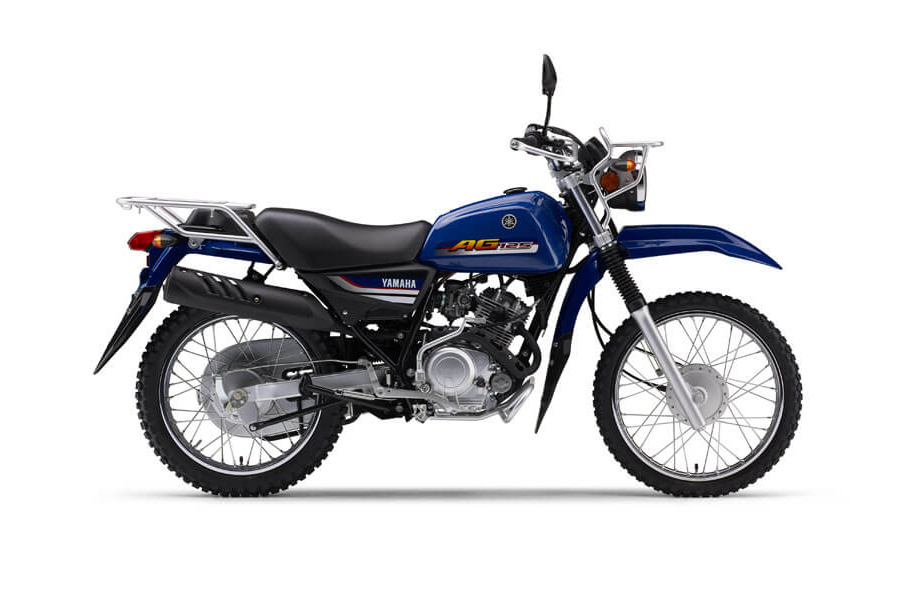
Modern farming has come a long way from the days when every task depended solely on manual labour and animal power. Today, technology drives progress in even the most remote agricultural areas. One of the most impactful innovations transforming rural life is the rise of Yamaha agriculture bikes. These machines are designed with the unique needs of farmers in mind, offering a blend of power, versatility, and reliability that helps bridge the gap between traditional practices and modern efficiency.
Changing The Face Of Rural Mobility
In many rural regions, transportation is one of the biggest challenges for farmers. Fields are often spread out across difficult terrains, and reaching them can be time-consuming without proper vehicles. Yamaha agriculture bikes address this issue by providing a fast and durable mode of transport. Their design focuses on stability, traction, and fuel efficiency, allowing farmers to move quickly between fields, transport supplies, or even carry small loads of produce to local markets.
Unlike conventional motorcycles, Yamaha agricultural bikes are tailored to handle muddy paths, rocky slopes, and uneven trails common in agricultural areas. Their reinforced frames, higher ground clearance, and specialised tyres make them ideal for demanding environments. This reliability reduces travel time and effort, giving farmers more control over their daily schedules and improving productivity.
Practical Power For Everyday Farming Tasks
The beauty of Yamaha agriculture bikes lies not only in their mobility but also in their utility. Many models come equipped with cargo racks and towing capabilities, making them useful tools for daily farm operations. Whether hauling fertilisers, transporting seedlings, or carrying harvested crops, these bikes take on roles that would otherwise require multiple workers or animals.
Farmers can attach small trailers or implement carriers, turning the bike into a multi-purpose agricultural assistant. For small and medium-sized farms, this flexibility can significantly reduce costs. Instead of investing in larger, expensive machinery that may be unnecessary for smaller plots, a Yamaha agriculture bike provides an affordable and efficient alternative.
Designed For Tough Conditions
Rural landscapes present unique challenges, including long distances between farms, limited infrastructure, and unpredictable weather. Yamaha’s engineers have developed their agricultural bikes with these realities in mind. Features like strong suspension systems, water-resistant components, and simple maintenance requirements ensure these bikes can withstand heavy use without frequent breakdowns.
The engines are optimized for fuel efficiency, which is essential in areas where fuel access can be limited. The combination of endurance and low operating costs makes Yamaha agriculture bikes a sustainable investment for farmers who rely on dependable tools to support their livelihood.
Enhancing Economic Opportunities
The benefits of Yamaha agriculture bikes extend beyond the farm. Increased mobility helps farmers connect with local markets more easily, allowing them to sell fresh produce without depending on middlemen. This independence helps raise incomes and encourages entrepreneurship within rural communities.
Additionally, easier transportation means quicker access to agricultural supplies, veterinary services, and educational programs. Farmers can attend training sessions or community events without spending an entire day travelling. This increased connectivity promotes growth and development in rural economies, empowering individuals to expand their operations and adopt modern agricultural techniques.
Supporting Sustainable Farming Practices
Sustainability is an essential aspect of modern agriculture, and Yamaha agriculture bikes contribute in meaningful ways. Their energy efficiency helps reduce overall fuel consumption, lowering carbon emissions compared to larger farm vehicles. Their compact size minimises soil compaction, preserving field health and promoting better crop yields.
Furthermore, the accessibility of these bikes encourages more efficient use of time and resources. Farmers can respond faster to weather changes or crop conditions, improving management decisions and reducing waste. By enabling quicker access to remote areas, Yamaha bikes also help in monitoring soil quality, irrigation systems, and pest control efforts more effectively.
Empowering The Next Generation Of Farmers
One of the less visible but equally important impacts of Yamaha agriculture bikes is the way they inspire younger generations to engage in farming. Many young people in rural areas often leave their communities in search of better opportunities, viewing agriculture as outdated or physically exhausting. Modern innovations like Yamaha agriculture bikes make farming more appealing and manageable.
By combining technology with tradition, these bikes show that agriculture can be efficient, innovative, and profitable. With easier access to tools and mobility, younger farmers feel encouraged to stay in the industry, bringing fresh ideas and digital know-how to rural development.
Real-Life Impact In Communities
Across several regions, the adoption of Yamaha agriculture bikes has already made visible improvements in productivity and quality of life. Farmers report being able to complete more tasks in less time and transport goods that were previously difficult to move. In hilly and remote areas, these bikes have become lifelines for both agricultural work and daily errands.
Local cooperatives and government programs have also begun recognising the value of such machines. In some areas, Yamaha bikes are part of community initiatives that provide affordable mobility solutions to small-scale farmers. These efforts not only improve agricultural efficiency but also strengthen rural resilience.
Final Thoughts
The Yamaha agriculture bike is more than just a vehicle; it is a symbol of rural transformation. It increases production, gives farmers more control over their operations, and links isolated regions to larger markets and opportunities. By blending practical engineering with real-world functionality, Yamaha has given farmers a tool that simplifies hard work and opens the door to a more sustainable and prosperous future.

